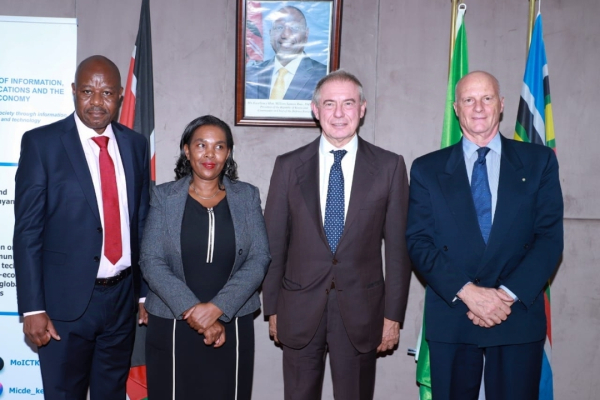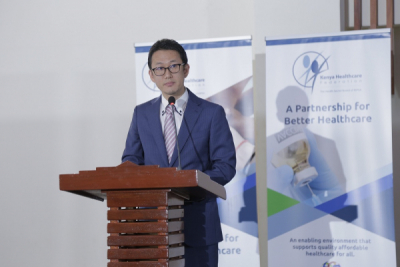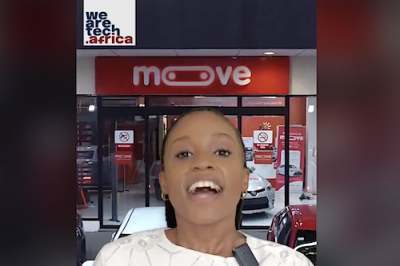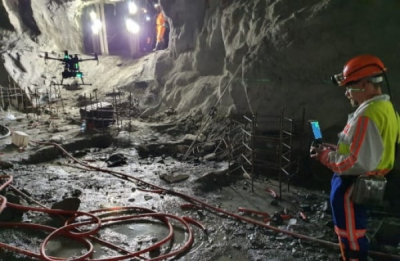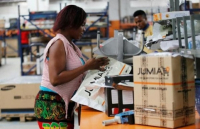
Tech TV (8)
Enhancing digital transformation is essential for accelerating Africa’s digital economy, which is vital for driving innovation and entrepreneurship. With rapid growth already underway, the digital economy stands to benefit significantly from improved connectivity and the establishment of digital hubs, facilitating business expansion and attracting further investment.
Kenya's Cabinet Secretary for the Ministry of Information, Communications, and Digital Economy, Dr. Margaret Ndung'u, met with Italian officials led by Minister of Enterprises and Made in Italy Adolfo Urso in Nairobi on September 30. The meeting discussed Kenya’s collaboration with Italy to boost its digital transformation efforts.
“Kenya is a strategic partner for the development of artificial intelligence in Africa. It is the country that has responded the most to the pilot accelerator program for African startups,” said Minister Urso.
Kenya aims to leverage Italy’s expertise in space and emerging technologies through a partnership focused on enhancing public service delivery, deploying innovative fibre-optic solutions, promoting information exchange, and advancing the production of digital devices and chips. Additionally, the collaboration will explore areas of cooperation in artificial intelligence (AI), particularly under the Mattei Plan. This includes the “AI Hub for Sustainable Development” project, spearheaded by the Italian G7 Industry, Technology, and Digital Ministerial Chairmanship, in collaboration with the UNDP.
The partnership will support Kenya’s Digital Superhighway project, which aims to lay 100,000 km of fibre and establish digital hubs across 1,450 wards. Areas of focus include space tech, AI, and manufacturing digital devices to drive socio-economic development.
This move will support Kenya's digital advancement as it directly supports the country’s growing tech ecosystem. It aligns with Kenya’s World Bank-backed Digital Economy Acceleration Project, which is expected to modernize digital infrastructure and services, in line with the government’s goal of boosting innovation, job creation, and economic diversification.
Hikmatu Bilali
With #Kwaba, users can save or receive instant loans for real estate projects. They can also conveniently pay their rent or when they are unable to pay security deposits, they can receive up to 40% of their rent savings and pay in monthly installments.
In the past five years, Africa’s startup ecosystem has grown rapidly and several unicorns were created. With new opportunities still open, the continent is sparking investors’ growing interest.
Japanese investment fund AAIC Investment announced Tuesday (April 29), the formation of the Africa Innovation & Healthcare Fund VCC (AHF2); its second investment fund dedicated to African startups. Supported by Asahi Intecc Co., Ltd., Eisai Inc., Ohara Pharmaceuticals, and major Japanese trading firms, the fund will support healthtech startups over the next ten years.
Currently, it is still open for subscriptions and will remain open until its closing at US$150 million.
According to Hiroki Ishida (photo), AAIC Investment’s Principal and Representative of the Kenya office, “the fact that hospitals in Africa are still lacking in basic infrastructure highlights the greater importance of the role of technology in developing countries than in developed economies.”
“I am looking forward to the next ten years of development, which is also the period of operation for our second fund,” he added.
AAIC Investment launched its first Africa Healthcare Fund in 2017. Through the fund, it raised US$47 million, which was invested in 30 startups. One of those startups is Chipper Cash, a cross-border payment provider which became a unicorn in 2021. That year, the startup raised US$150 million in Series C funding, raising its valuation to US$2 billion.
AAIC Investment already has offices in Kenya (2015), Nigeria (December 2020), and South Africa (March 2022). With AHF2, it plans to expand its operational footprint by covering the whole of Africa.
In the past five years, Africa’s startup ecosystem has grown rapidly. The growth was recently accelerated by the coronavirus pandemic, which highlighted the importance of digital solutions on the continent. Nigeria, Kenya, South Africa, and Egypt have attracted a sizeable amount of investment due to their innovation-enabling ecosystems. According to Partech, those countries captured close to 74% of the overall investments attracted by African startups in 2021.
Muriel Edjo
For several months, the social distancing measures issued to curb the spread of the coronavirus pandemic forced a shift in professional and social exchanges. That period saw significant growth in social media use. It was also the opportunity for platforms to get an accurate feel of users’ needs and try to solve them. With the current upgrades and more to come, Whatsapp is responding to users’ suggestions.
Messenger platform Whatsapp announced Thursday (April 5) new improvements to its platform; 512 people can now be added to Whatsapp groups, twice the number that was previously allowed. In addition, from 100MB previously, the max size of files users can send through end-to-end encryption is increased to 2GB.
In Africa, WhatsApp's latest upgrades are opportune for several players, including online businesses, educational institutions, professional groups, trade unions, NGOs, and political parties.
In its blog post announcing the upgrades, WhatsApp explained that they are in line with its vision to enable “organizations, businesses, and other close-knit groups to communicate securely and get things done.”
This year, it made significant improvements to its platform to make it more useful. In March, the messenger platform introduced new voice message options. For instance, users can listen to voice messages out of the chat where they were sent. That way, they can multitask and reply to other chats. They can also pause the voice messages they are recording or listen to them before sending.
In April, the "Community" feature was introduced to “bring together separate groups under one umbrella.”
The platform is also developing several features to take into account the suggestions made by its users during the Coronavirus pandemic that had a notable impact on social and professional exchanges.
Muriel Edjo
Moove is an African mobility fintech that is democratizing vehicle ownership by providing revenue-based vehicle financing to mobility entrepreneurs across Africa, where limited access to vehicle financing has resulted in the lowest per capita car ownership in the world. The company is Uber’s exclusive vehicle financing and vehicle supply partner in sub-Saharan Africa.
South African mining technology platform Dwyka Mining Services will help Canadian mining firm Trevali roll out the smart mobile scanning unit Hovermap in its mines. That move aims to improve the localization, visualization, and mapping of mining assets and related infrastructure using detection scanners and lightwave telemetry, which will help reduce costs and improve the quality of Trevali’s services.
“Traditionally, [Trevali’s] scanning methodologies were quite time-consuming, and coming into the Trevali operating team was quite a shift to what was done in the past,” comments Jamie van Schoor, Dwycka’s MD.
Hovermap is essential for Trevali’s project to realize the digital twins of its mining asset and infrastructures since it helps scan and compile 3D models. For some time now, the Canadian firm has been modernizing its mines in Africa. For instance, in Namibia, it uses the Slim Gyro system to inspect drill holes at the Rosh Pinah mine. According to Gerhard Louw, Chief Surveyor of Rosh Pinah Zinc Corporation, Slim Gyro significantly improved production strategies and results.
In the same vein, with Hovermap, Trevali wants to apply a standardized method and collect important data-driven information. As it explains, by automating physical processes, digitizing assets, and improving mining processes it ultimately intends to consolidate its status as one of the renowned mining firms.
Adoni Conrad Quenum
With Covid-19, the retail e-commerce market is booming in Africa. Noticing the developing trend, many international players are positioning themselves to meet the needs of clients who are increasingly attracted by the prospect of remotely buying what they need.
Buying online and getting your package delivered to your doorstep, at a drop-off or pick-up point is now possible in Morocco, Kenya, and Nigeria with United Parcel Service (UPS). On Monday, April 4, the US parcel delivery firm announced a partnership agreement with Jumia in that regard.
In the framework of the agreement, UPS will capitalize on Jumia’s e-commerce logistics assets to develop its delivery service and strengthen its presence in Africa. It will also offer clients several payment options including mobile money.
“At the beginning of our journey (launch of the e-commerce platform), 10 years ago, logistics infrastructure was one of the most challenging aspects of our operating environment. This challenge was a catalyst for us to build an unparalleled logistics platform in Africa, offering our sellers and consumers reliable, convenient and cost-effective delivery services. (...) Today, we are helping other businesses overcome these infrastructure challenges by giving them access to our logistics platform,” said Apoorva Kumar, Jumia's senior vice president for logistics.
According to Jumia, after Morocco, Kenya, and Nigeria, the partnership with UPS will extend to Ghana, Côte d’Ivoire, and all the remaining African countries where it is present. For Apoorva Kumar, it is the opportunity to build “a world-class logistics business in Africa.”
Due to the coronavirus pandemic that began in 2020, urban populations’ consumption habits are changing in Africa. As a result, the parcel delivery sector is growing as much. In its Postal Economic Outlook 2021, the Universal Postal Union (UPU) reports that domestic parcel volume grew by 6.1% in 2020. International parcel volume on the other hand declined by 24.8% due to temporary air transport restrictions.
Muriel Edjo
While visiting Eco Park, Cameroon, Bryan Pemwoya realized that many people did not know about the gorgeous tourist sites his countries held. Thus, he decided to create TourCMR, an application that integrates, progressively, all 1,000 tourist sites listed in Cameroon. With the help of the AFCON, which took place in the country last January, the number of downloads of the app took off.


